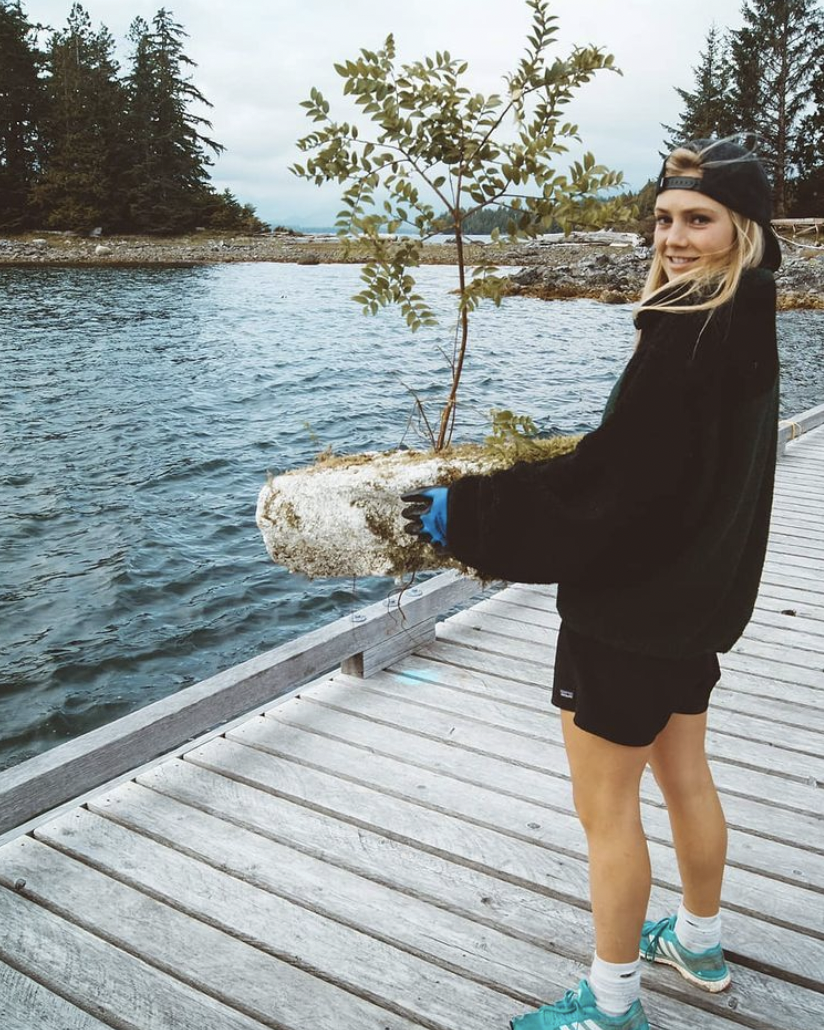Expanded Polystyrene (EPS) is creating an everyday disaster in BC waters
Expanded Polystyrene (EPS), often referred to as Styrofoam™, is a petroleum-based plastic commonly used for protective packaging. Many of us are familiar with (and perhaps infuriated by) the moulded forms of tiny puffed balls that insulate our consumables from unwanted jostles and knocks, but on the coasts this material has another common application: dock floatation.
EPS is cheap, lightweight and it floats, which would seem to make it an ideal material for foreshore infrastructure. However, as EPS begins to weather it erodes rapidly, breaking into miniscule particles which persist in the natural environment and are almost impossible to clean up. EPS is the most common pollutant found on BC shorelines by volume, and a close look at almost any beach will reveal small white flecks of foam scattered throughout. These microplastics are ingested by fish, birds, and marine mammals, and also absorb pollutants from the water, acting as a vector for pathogens and toxic contaminants. In short, EPS pollution is a pervasive threat to ocean and human health, and foam docks are a major contributor to this widespread problem.
The prevalence of this material has led to some creative responses from coastal communities; on Vancouver Island, local shapers are pioneering new ways to turn large blocks of marine debris EPS into surfboards. This innovative project is reframing our concept of waste and helping to reduce the footprint associated with shipping this low-density material out for chemical recycling. However, despite its ingenuity, this project only provides an end of life solution for <1% of the foam recovered from shorelines annually. Much of the foam recovered from the environment is too contaminated with organic material to repurpose or recycle, leaving landfill or incineration as the only options available for disposal. Not to mention the thousands of unrecoverable foam particles dispersed into ocean and shoreline environments from every leaky billet.
As cleanup isn’t a viable option, it is imperative that we look upstream to address this issue at the source. With Canadian manufactured alternatives readily available, Surfrider Foundation Canada is supporting advocacy for a complete ban on the use of EPS for aquatic applications - and we need your help! To truly tackle this issue will require a comprehensive legislative response, as well as subsidies for the phasing out of EPS from public docks, and incentives for private dock owners to make the switch. With a resolution being discussed at the upcoming UBCM, and an active federal petition, now is the time to speak up on this issue - and we’ve made it easy for you to make your voice heard:
ACTIONS TO TAKE NOW:
BC Residents: use our handy letter writing tool to tell your local government representatives to vote in favour of the resolution to ban EPS for marine applications at the upcoming UBCM Convention on September 12th.
Canada Residents: sign the federal petition to ban EPS for marine applications. Spread the word! Share the link to the petition or print a physical copy of the petition and gather signatures then mail it for free to Rachel Blaney MP.
For every 500 digital signatures and 30 physical signatures, Rachel Blaney MP has committed to rising in the House of Commons to bring this issue to the attention of our elected representatives. Plastic pollution has been identified as a global priority due to being a driver of climate change, biodiversity loss, and pollution - the three major existential threats to the habitability of our planet. Canada has begun to take strides in the regulation of single use plastics however, in the context of ocean plastic pollution, we need much greater scrutiny and legislation around the uses of plastic in the aquatic environment - starting with foam docks.

